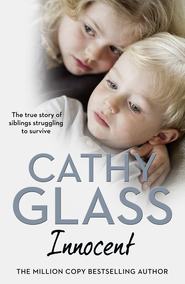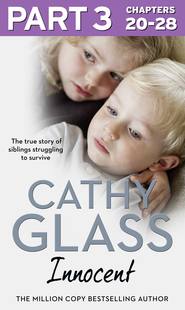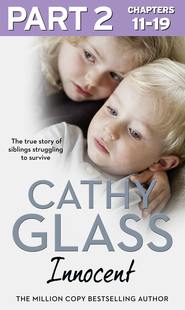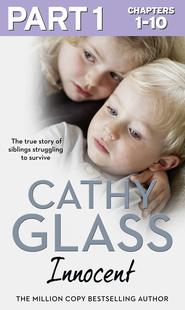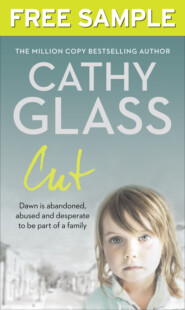По всем вопросам обращайтесь на: info@litportal.ru
(©) 2003-2024.
✖
Where Has Mummy Gone?: A young girl and a mother who no longer knows her
Настройки чтения
Размер шрифта
Высота строк
Поля
‘Would you like to take off your coat and shoes?’ I asked Melody, who was still standing beside us and hadn’t followed her social worker into the living room. She looked at me as though I was completely barmy, probably having never taken off her shoes and coat as part of the routine for entering her home. ‘We usually do,’ I added.
Melody was of average height and build, but her pale skin was grubby. There were dark rings under her eyes from lack of sleep and her brown, shoulder-length hair was unwashed and matted. I already knew she had nits and I would treat those later. Her zip-up anorak was filthy, a long rip down one sleeve showed the white lining and the zipper was undone and hanging off. Beneath her jacket she was wearing a badly stained jumper and short skirt. The skirt and ankle socks she wore were more suitable for summer than winter; her legs must have been freezing. Her filthy plastic trainers had holes in the ends where her toes poked through. Not for the first time since I’d started fostering, I felt greatly saddened that in our reasonably affluent society a child could still appear in this state.
‘Are you going to take off your coat and shoes?’ Jim now asked.
‘No!’ Melody said, and headed down the hall.
‘That told us,’ I said quietly to Jim. He smiled. Foster carers and social workers have to maintain a sense of humour in order to survive the suffering and sadness we see each day. I’d ease Melody into our way of doing things as we went along.
‘Would anyone like a drink?’ I asked as Jim and I entered the living room.
‘Coffee, please,’ Neave said from the sofa. ‘Milk, no sugar.’
‘And for me too, please, if it’s not too much trouble,’ Jim added.
‘And what about you?’ I asked Melody, who’d sat next to Neave.
‘No. I don’t want anything from you.’ She scowled.
‘OK, maybe later. There’s a box of games you might like to look at,’ I said, pointing to the toy box of age-appropriate games I’d put out ready. ‘There’s some children’s books on the shelves,’ I added.
‘Not looking,’ she said. Folding her arms defiantly across her chest, she glared at Neave. ‘I want to go home. Take me back, now!’
‘You know I can’t do that,’ Neave said. ‘I explained in the car what was happening.’
‘I don’t care what you said. It’s not your decision. It’s up to me and I want to go home!’
‘That’s not possible,’ Neave said evenly. ‘You’re staying with Cathy and her family for now, and she is going to look after you very well. You’ll do lots of nice things and you’ll see your mother soon.’
‘I want to see Mum now!’ Melody’s anger flared and for a moment I thought she was going to hit Neave. Neave thought so too, for she moved further up the sofa. ‘My mum needs me!’ Melody said with slightly less aggression. Many children come into care believing that their parents won’t be able to manage without them, and part of my role is to take away the inappropriate responsibility they’ve had at home and encourage them to be children.
I made my way towards the kitchen to make the coffee but as I left the living room the front doorbell rang. ‘That’ll be Jill,’ I said, and went to answer it.
‘Sorry I’m late,’ she said. ‘I’ve come straight from placing another child. Are they here?’
‘Yes, just arrived. They’re in the living room. I’m about to make coffee. Would you like one?’
‘Oh yes, please,’ she said gratefully. ‘Have you got a biscuit too? I haven’t had time for lunch.’
‘I could make you a sandwich?’ I offered.
‘No, a biscuit is fine.’
Jill went into the living room and introduced herself, while I set about making the coffee. I could hear Jill talking to Melody in a reassuring voice, telling her she would be happy with me, that I’d look after her and there was nothing for her to worry about. Jill was a highly experienced social worker and I greatly valued her input, support and advice.
I took the tray carrying the drinks and a plate of biscuits into the living room and set it on the coffee table. ‘Are you sure you wouldn’t like a drink?’ I asked Melody as I handed out the mugs of coffee.
‘No, but I’ll have a biscuit.’ Standing, she grabbed a handful of biscuits and returned to the sofa to eat them.
‘Are you hungry?’ Neave asked her as they quickly vanished.
‘No,’ she snarled.
‘I’ll make her something to keep her going until dinner once we’ve finished,’ I reassured Neave.
I passed the plate of biscuits to the adults and then put the empty plate on the tray. For a few moments there was quiet as they sipped their coffee and ate the biscuits. I thought Jill wasn’t the only one who hadn’t had time for lunch. Neave set her half-empty mug on the coffee table and took a wodge of papers from her briefcase. When a child is placed there are formalities that need to be completed, and Neave handed Jill and me a copy each of the Essential Information Form Part 1. This contained the basic information I needed about the child I was fostering, and I began to look through it, as did Jill, while Neave finished her coffee. Much of the information I already knew from Jill. It included Melody’s full name, most recent home address, date of birth and her parents’ names, and in the box for other family members was printed Four half-siblings, all adopted, but not their names. Melody’s ethnicity was given as white British and her first language English. The box for religion showed None, and her legal status showed Interim Care Order. There were no special dietary requirements and Melody had no known allergies. Her school’s name and address were shown with a comment in the box saying she’d only been there since September. It was January now, so she’d joined four months previously.
‘Melody changed school last term then?’ I asked Neave.
‘Yes, with the most recent move,’ she replied. ‘She’s had a lot of changes of school, with long gaps in between when she didn’t attend at all. Now she’s in care she’ll have more stability in her life. She’s very behind with her school work.’
‘I hate school. I’m not going,’ Melody said, her face setting.
‘All children have to go to school,’ Jill said gently.
‘I don’t!’ Melody snapped.
‘You do, love,’ I said. ‘All the children in this house go to school and tomorrow we’ll buy you a nice new school uniform.’ Not a bribe, but an incentive.
‘I was going to mention her clothing,’ Neave said. ‘I’m afraid she just has what she is wearing. Her mother said she has other clothes, but they needed washing.’
‘Not a problem,’ I said. ‘We’ll use my emergency supply until we can go shopping and buy her new clothes. The school usually sells the uniform, so we can get that tomorrow morning when we go in.’
‘That’ll be nice, won’t it?’ Jill said encouragingly, turning to Melody. ‘Lots of new clothes.’
Melody scowled, but not quite so forcibly. All children like new things, especially when they haven’t had any before.
Jill and I returned to the Essential Information Form. The next line was about special educational needs – Melody requires classroom support was printed in the box. The next question asked if the child had any challenging behaviour and printed in the box was Melody has challenging behaviour. She can be angry. The next box about contact arrangements was empty.
‘Contact?’ Jill queried.
‘I’ll confirm the contact arrangements when I’ve spoken to the Family Centre to check availability,’ Neave said. ‘Melody will have supervised contact with her mother at the Family Centre – I’m anticipating on Monday, Wednesday and Friday, four till five-thirty. You’ll be able to take and collect her?’ Neave asked me. It’s expected that foster carers take children to and from contact, school and any appointments they may have.
‘Yes,’ I said, and made a note of the days and times in my diary.
‘I want to see my mum now!’ Melody demanded, having finished the biscuits.
‘You’ve just seen her,’ Neave said, ‘and you’ll see her again tomorrow – Wednesday.’
‘That’s not long,’ Jill said positively.
‘I want to see my mum at home!’
‘The Family Centre is like a home,’ I said. ‘It’s got sofas to sit on and lots of games to play with. I’ve taken children before and they always have a good time.’
Melody threw me a withering look and I returned my attention to the form, as did Jill.
‘Sibling contact with her half-brothers and sisters?’ Jill asked Neave.
Другие электронные книги автора Cathy Glass
Innocent




 0
0






